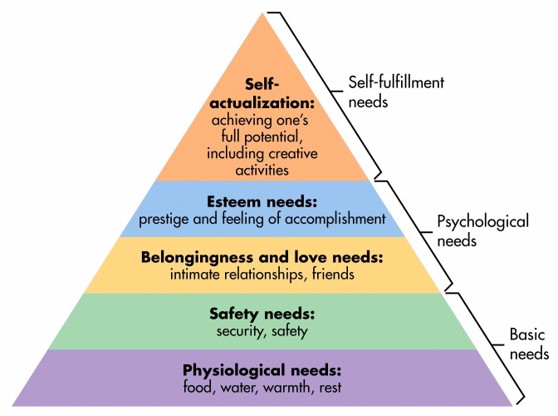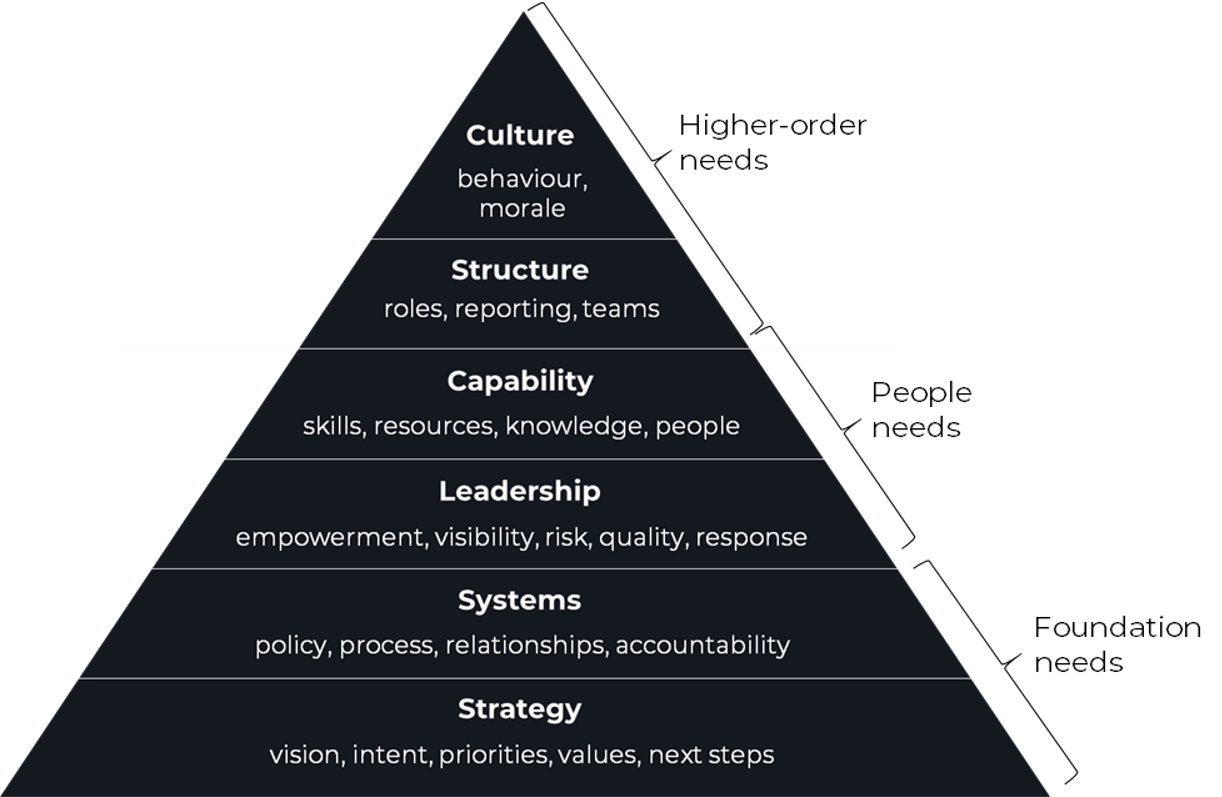1 min read
Your Real Value is Converting Uncertainty
Nobody knows what they're doing. Literally nobody. We're all winging it. We're digging through mental filing cabinets and muscle memory, every...

In a client mentoring session on Friday, I was looking forward to hearing how a job interview had gone. After an extended secondment and a long recruitment process, mucked around by COVID and non-COVID-related delays, the big day was finally pegged to take place last week, and my client was excited.
Well, she didn’t get the job. Not because it went to someone else, but because the interview was called off… the day before. The ELT had decided to implement another “reshuffle”- so all recruitment conversations were put on hold. Again. For the sake of some awkward conversations in the party of five, hundreds of people were affected and thrown back into uncertainty.
That conversation inspired me to write a rant on LinkedIn, which went gangbusters. The gist: restructures, by any name, are not the answers to most of your problems. When all you’ve got is a hammer, everything – decisions, delegations, management systems, poor relationships – looks like a nail.
Some of you might be familiar with Maslow’s Hierarchy of Needs. The basic idea is: not all human needs are created equally. We have fundamental needs (food, shelter, safety) that need taking care of before we think have conversations about the meaning of life.
Two years ago, working with a business that used the restructure hammer multiple times a year, I developed the McKay Hierarchy of Organisational Needs. The idea is the same as Maslow's: not all organisational needs are created equally. Before we worry about the structure of our teams, or start having conversations about “changing the culture” we need to ensure basic needs are taken care of.

Let’s break those needs down a little more…
If you don't know why, you don't care how.
Unless you have clarity on what you're about, where you're heading, and what people should focus on, it's extremely difficult for your people to use their time and energy wisely.
Strategy isn't about pretty documents or detailed plans - it's about understanding priorities and having a clear vision. Unless you equip your teams with clarity of direction, you're asking them to read your mind.
A wishbone is no substitute for a backbone.
Strategy is great, and direction is critical, but unless our organisations have the policies, processes and relationships in place to make those dreams a reality, we're setting people up to fail.
When delegations, financial rules, policies, customer service or IT systems get in the way, progress lasts about as long as our motivation does. Our goals are born in the boardroom, but they die in the backroom, so get that sorted before you worry about who's doing what. Make it easy for them to do the right thing.
Time and again, executive teams come to me in frustration with their teams - they have no accountability, don't take risks, resist change... Oh, rubbish.
Take a look in the mirror.
Performance comes from the top, and unless you're modelling the behaviour you want to see, empowering people to do a great job and focusing on the jobs at your paygrade: managing strategic risk, setting clear bottom lines, seeing the big picture and responding quickly and effectively to crisis, then any structural change is doomed to flop.
Invest in the strategic capacity of your leaders, and watch the tide begin to turn.
When you know what you're doing, you've created an environment that makes it easy to do the right thing, and you're leading from the front, it's time to consider what you need to get there.
Capability isn't about off-the-shelf training or buying in talent from other organisations - it's about the institutional knowledge, skills and resources you have to close the gap between your now and your next.
Before you start shuffling the deck chairs on the Titanic, take the time to consider what the most critical capability systems will look like - otherwise, you're recruiting more of the same and putting them in different places, and you'll be disillusioned within weeks.
When you've got all of your other ducks in a row, you can think about how to structure lines of responsibility, communication and accountability. Unfortunately, we tend to do this bit wrong, focusing on our organisational structure instead of our decision structure.
Performance isn't about where people sit; it's about the quality of the choices they make. Successful organisations make and execute good decisions, so work out what those decisions are, which ones are the most important, and the fastest and easiest ways to make them. Use that information to guide where people sit, who they talk to, and what their responsibilities should look like.
Culture is pretty trendy and blamed for a full spectrum of ills at work. It's easy to point the finger at – 'it’s just the culture around here' - but it's not useful. Blaming culture makes our problems (lack of progress, hesitance to take risks, dysfunctional leadership) seem like nebulous, unsolvable mysteries.
Culture is a higher-order need, and mostly an output. It's not something we can just shift, tweak or buy, but a daily output of everything that comes before it. People come to work to do a good job, and when we make that easy for them, by taking care of our lower-order needs, they generally do.
The evidence supports this, particularly when it comes to public service transformation. While service transformation is unlikely without culture change, the heart of culture change is organisational development and leadership development. Makes sense.
If you’re struggling inside the madness, and considering yet another restructure, take the time to work your way through the hierarchy first – are your foundation needs taken care of?
Are our leaders focused on the right things?
Do we have the skills and capabilities we need to achieve our goals?
Are decisions made in the right place?
Most importantly, before you start fiddling with your structure, take a good, hard look at whether you have other ducks in a row. Otherwise, you will wind up with a team full of uncertain and unproductive people who are no better off.
Like Maslow's Hierarchy, our organisational needs aren't a one-and-done. They require constant attention and redirection as we tweak and shift in response to our environment. Take the space to zoom out and consider the big picture before charging ahead with the easy fix. That way, we take care of our most important needs over the long term.
(And before you start talking about “changing the culture” as though it's an input, reconsider whether the way your organisation runs supports the behaviours you’re sticking on posters in the staff room. If you take care of those, you might find culture is an output that largely takes care of itself!)

1 min read
Nobody knows what they're doing. Literally nobody. We're all winging it. We're digging through mental filing cabinets and muscle memory, every...

I recently admitted to losing my mojo at work, and asked my wonderful Wednesday Wisdom readers how to find that sense of meaning again. WOW, you...

5 min read
It’s a worrying time to be in charge. How can you be a successful leader when you’re worried about the future? We live in a time of...

2 min read
I was at a wedding on Saturday and, thanks to what I was wearing, received some inquiring comments about a tattoo that’s usually covered. It sits...

2 min read
The company you keep matters. When you're surrounded by smokers, you're more likely to be a smoker. When your friends are successful at work,...

2 min read
Welcome to another Wednesday Wisdom. Every week, I share with you what I'm thinking about life, work, and leadership. This week we're talking...